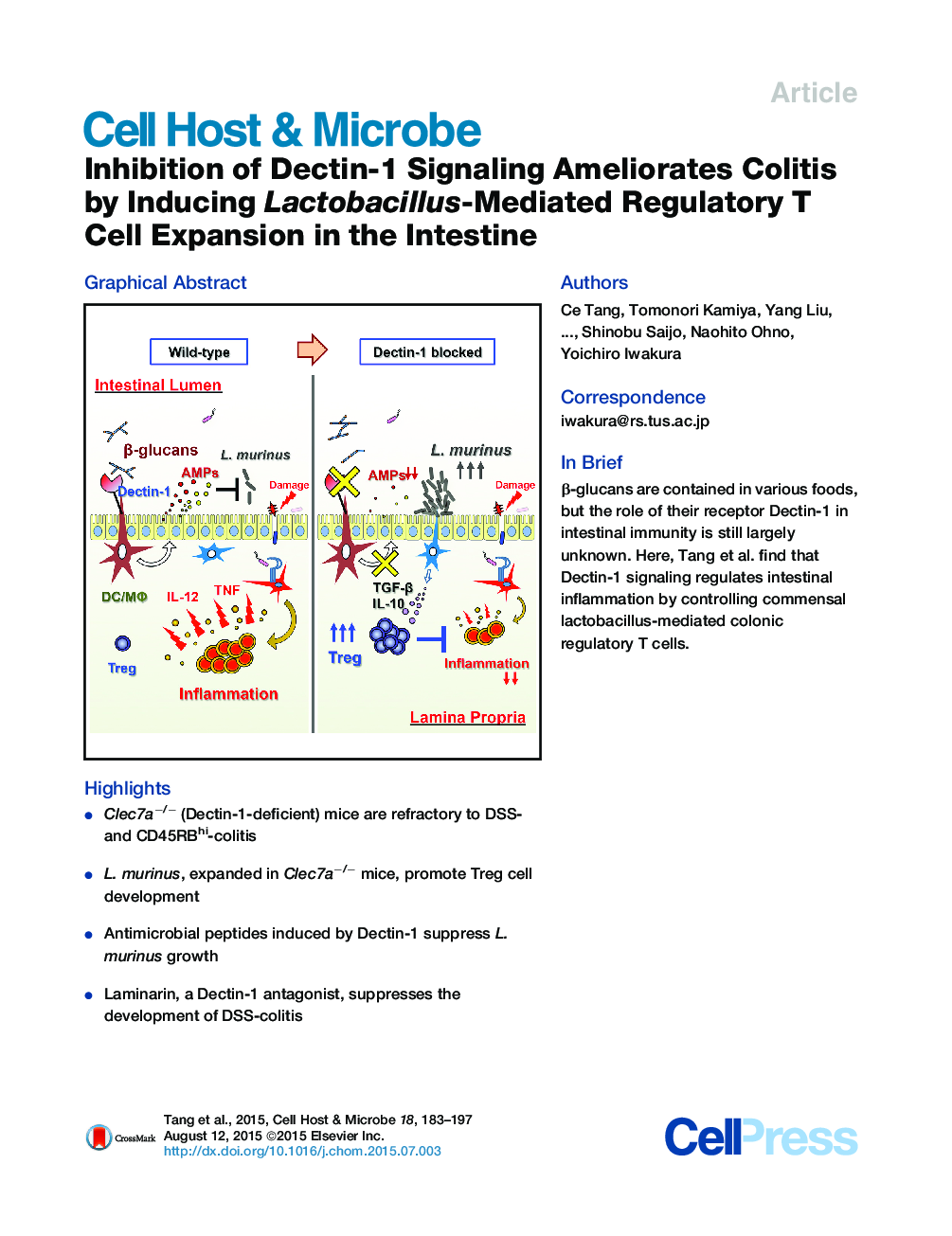| Article ID | Journal | Published Year | Pages | File Type |
|---|---|---|---|---|
| 4360885 | Cell Host & Microbe | 2015 | 15 Pages |
•Clec7a−/− (Dectin-1-deficient) mice are refractory to DSS- and CD45RBhi-colitis•L. murinus, expanded in Clec7a−/− mice, promote Treg cell development•Antimicrobial peptides induced by Dectin-1 suppress L. murinus growth•Laminarin, a Dectin-1 antagonist, suppresses the development of DSS-colitis
SummaryDectin-1, the receptor for β-glucans, protects the host against fungal infection; however, its role in intestinal immunity is incompletely understood. We found that Dectin-1-deficient (Clec7a−/−) mice were refractory to both dextran sodium sulfate (DSS)- and CD45RBhighCD4+ T cell-induced colitis, and that this resistance was associated with an increase in regulatory T (Treg) cells. The proportion of lactobacilli, especially Lactobacillus murinus, in the commensal microflora was increased in Clec7a−/− mouse colons, and accompanied by a decrease in antimicrobial peptides induced by Dectin-1 signaling. L. murinus colonization increased Treg cells in the colon. Oral administration of laminarin, a Dectin-1 antagonist, suppressed the development of DSS-colitis, associated with an increase of L. murinus and Treg cells. Human patients with inflammatory bowel disease were found to have a decreased proportion of closely related Lactobacillus species. These observations suggest that Dectin-1 regulates the homeostasis of intestinal immunity by controlling Treg cell differentiation through modification of microbiota.
Graphical AbstractFigure optionsDownload full-size imageDownload high-quality image (315 K)Download as PowerPoint slide
